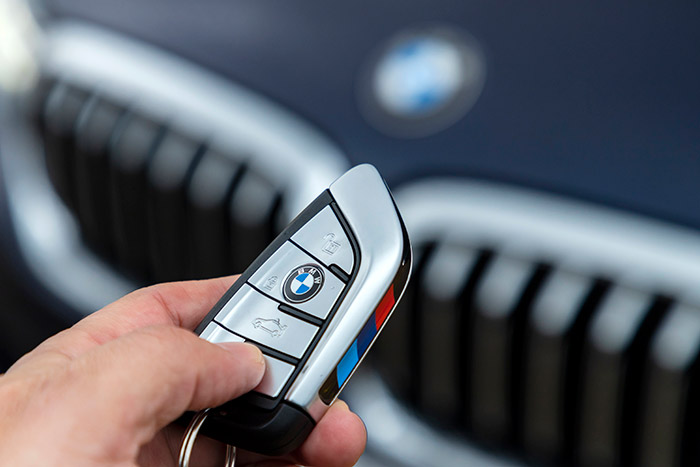
The Complete Guide to Car Keys: Types, Technologies, and Solutions
Car keys have evolved significantly over the years, transitioning from simple metal keys to complex electronic devices capable of performing various functions. Understanding the different types of car keys and their technologies is essential for modern car owners. In this article, we delve into the details of car keys, their types, functionalities, and common issues, while also providing solutions. For more detailed information, visit Car keys https://www.vancouverkeyrescue.com/car-keys/.
Types of Car Keys
Car keys can be categorized into several types based on their design and functionality. These include:
- Traditional Keys: The oldest type of car key, often made of brass, requiring manual insertion into the ignition.
- Transponder Keys: A modern type of key that contains a microchip. It communicates with the car’s ignition system to prevent theft.
- Key Fobs: These are remote devices that allow keyless entry and sometimes ignition. They may also include panic buttons or trunk release features.
- Smart Keys: Utilizing advanced technology, these keys allow you to start your vehicle with the push of a button, as long as the key fob is nearby.
- Mobile App Keys: Some manufacturers have started to allow owners to unlock and start their cars using smartphone applications.
The Evolution of Car Keys
The evolution of car keys is a direct response to the increasing need for security and convenience in vehicle operation. The introduction of transponder keys in the late 1990s marked a significant leap forward, providing enhanced security measures to deter car theft. Manufacturers began integrating these technologies into their vehicles, making traditional keys obsolete.
Over the years, the development of keyless entry systems and smart keys has transformed the way we interact with our vehicles. The integration of remote features means that you no longer have to fumble with keys to unlock your car door, enhancing accessibility and ease of use.

How Car Keys Work
Understanding how car keys work can demystify some of the technology behind them. For instance, traditional keys work simply by physically engaging the ignition lock cylinder. However, modern keys employ a complex interaction between the key and the car’s computer system.
Transponder keys contain a radio frequency identification (RFID) chip that emits a unique code when within proximity of the car. The car’s ignition system verifies this code and will only start if it matches, which is a key element in preventing unauthorized access.
Smart keys take this a step further, allowing for keyless entry and ignition. These systems utilize both short-range communication and encrypted signals, making them more secure but also more complex.
Common Issues with Car Keys
Just like any other component of a vehicle, car keys can encounter issues. Here are some common problems along with their potential solutions:
- Lost Keys: This is a frequent issue among car owners. Having a spare key is crucial, and many locksmiths can create a duplicate if you possess the original.
- Broken Keys: If your key breaks in the ignition, a professional locksmith can extract it without causing damage to the ignition system.
- Dead Key Fob Battery: Key fobs rely on batteries, and if the remote stops working, it could simply be a dead battery. Replacing it is relatively easy and can often be done at home.
- Programming Issues: Sometimes, the car may not recognize the key. In such cases, reprogramming might be necessary, which is typically a service offered by dealers or certified locksmiths.
- Wear and Tear: Over time, the internal components of keys can wear down, affecting their functionality. Regular maintenance or a key replacement might be required.

Maintaining Your Car Key
Maintaining your car key is essential for ensuring its longevity and reliability. Here are some tips for proper care:
- Avoid Water Damage: Keep your keys dry and store them in environments where they won’t be exposed to excessive moisture.
- Regular Check-ups: Schedule regular check-ups at auto locksmith services to ensure your key’s functionality, especially if you begin to notice issues.
- Store Safely: Always store your keys in a consistent location to avoid losing them and consider having a spare key at home or with a trusted friend.
- Use Key Covers: Utilize protective covers to shield your keys from physical damage and dirt, particularly for key fobs.
Future of Car Key Technology
The future of car key technology looks promising, with innovations continuing to emerge. Connectivity is becoming paramount, and we are likely to see more integration with mobile devices and smart technology. Some concepts on the horizon include:
- Biometric Security: The implementation of fingerprint recognition and facial recognition could enhance security even further.
- Blockchain Technology: Utilizing blockchain to manage vehicle access and ownership could reduce theft and enhance security.
- Enhanced Remote Features: Future key fobs might come with features allowing remote start, pre-cooling of the vehicle, or geofencing capabilities.
Conclusion
Car keys have come a long way from their traditional roots. Understanding the types of keys, their functionalities, and how to address common issues ensures that car owners can make informed decisions regarding their vehicles. Whether it is a simple lost key or advanced programming of smart keys, knowing who to turn to for help is important. With the advancements in technology, the future of car keys promises even more functionality, security, and convenience for drivers around the globe.
Leave a Reply